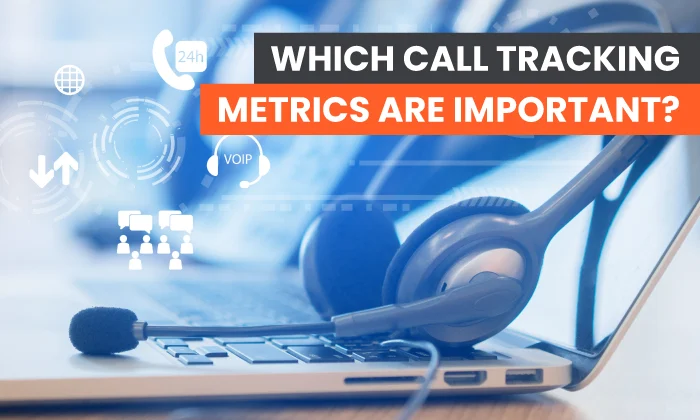Introduction to Call Tracking Marketing
In the ever-evolving landscape of digital marketing, businesses are constantly seeking innovative ways to enhance their strategies and drive better results. One such powerful tool gaining prominence is call tracking marketing. At its core, call tracking involves assigning unique phone numbers to different marketing campaigns to track the source of incoming calls and gather valuable data. This data can then be analyzed to optimize marketing efforts and improve overall ROI.
How Call Tracking Works
Call tracking operates on a relatively simple yet highly effective principle. Unique phone numbers are generated and assigned to specific marketing channels or campaigns. When a customer calls one of these numbers, the call tracking system captures key information such as the caller’s phone number, call duration, and the campaign that prompted the call. This data is then stored and analyzed to provide insights into the effectiveness of various marketing initiatives.
Benefits of Implementing Call Tracking
The implementation of call tracking offers a multitude of benefits for businesses looking to maximize their marketing efforts. Firstly, it provides a more accurate measurement of ROI by attributing phone calls directly to the marketing channels that drove them. This enables businesses to allocate their marketing budget more effectively, focusing resources on strategies that yield the highest returns.
Additionally, call tracking provides invaluable insights into customer behavior and preferences. By analyzing call data, businesses can gain a deeper understanding of their target audience, including their needs, pain points, and buying habits. This information can then be used to tailor marketing messages and campaigns to better resonate with customers, ultimately driving higher conversion rates and revenue.
Integration with Digital Marketing Channels
One of the key advantages of call tracking is its seamless integration with various digital marketing channels. Whether it’s pay-per-click (PPC) advertising, search engine optimization (SEO), or social media marketing, call tracking can be implemented across all these channels to track the effectiveness of each campaign. This level of integration allows businesses to gain a comprehensive view of their marketing performance and make data-driven decisions to optimize their strategies.
Optimizing Campaign Performance with Call Tracking Data
One of the most significant advantages of call tracking is its ability to provide real-time insights into campaign performance. By monitoring call data as it comes in, businesses can quickly identify which marketing channels and campaigns are driving the most calls and conversions. This enables them to allocate resources more effectively, investing more in high-performing strategies and adjusting or eliminating underperforming ones.
Moreover, call tracking data can reveal valuable insights into customer behavior patterns. By analyzing call duration, call times, and caller demographics, businesses can gain a deeper understanding of when and how their target audience prefers to engage with them. Armed with this knowledge, they can tailor their marketing strategies to better meet customer needs and preferences, ultimately driving higher engagement and conversion rates.
Enhancing Customer Experience
In addition to improving marketing performance, call tracking also plays a crucial role in enhancing the customer experience. By providing customers with personalized, targeted interactions, businesses can create a more positive impression and build stronger relationships with their audience. Call tracking allows businesses to route calls to the most appropriate agents based on the caller’s needs, ensuring quick and efficient resolution of queries.
Furthermore, call tracking enables businesses to track the entire customer journey, from the initial point of contact to the final sale. This end-to-end visibility allows businesses to identify areas where the customer experience can be improved and take proactive steps to address any issues. By delivering a seamless, frictionless experience across all touchpoints, businesses can foster customer loyalty and drive repeat business.
Maximizing Marketing Budget Allocation
Effective allocation of marketing budget is essential for maximizing ROI and driving business growth. Call tracking provides businesses with the insights they need to make informed decisions about where to invest their marketing dollars. By identifying which campaigns are generating the most calls and conversions, businesses can allocate more resources to these high-performing strategies, while reducing or eliminating spending on less effective channels.
Moreover, call tracking enables businesses to track the ROI of each marketing channel with greater accuracy. By attributing phone calls directly to specific campaigns, businesses can calculate the true cost per lead and cost per acquisition for each channel. This allows them to optimize their marketing budget allocation to achieve the highest possible return on investment.
Call Tracking Best Practices
While call tracking offers numerous benefits, it’s essential to follow best practices to ensure its effectiveness. Firstly, businesses should choose a reputable call tracking provider that offers robust features and reliable tracking capabilities. It’s also crucial to set up tracking numbers correctly to ensure accurate data capture and attribution.
Additionally, businesses should analyze call tracking data comprehensively, looking beyond just the number of calls to understand caller behavior and preferences. By combining call data with other metrics such as website traffic and conversion rates, businesses can gain a more holistic view of their marketing performance and make more informed decisions.
Addressing Privacy Concerns
Privacy concerns are a significant consideration when implementing call tracking. Businesses must ensure that they comply with relevant regulations, such as GDPR and CCPA, to protect the privacy of their customers’ data. This includes obtaining consent from callers before recording calls and implementing robust security measures to safeguard sensitive information.
Furthermore, businesses should be transparent with customers about their call tracking practices and reassure them that their privacy is being respected. By being upfront about how call tracking works and the steps taken to protect caller privacy, businesses can build trust with their audience and mitigate any concerns they may have.
Case Studies: Success Stories
To illustrate the effectiveness of call tracking, let’s explore a few real-life examples of businesses that have benefited from its implementation:
- E-commerce Retailer: By implementing call tracking alongside their digital marketing efforts, an e-commerce retailer was able to attribute a significant portion of their phone sales to specific PPC campaigns. By reallocating budget to these high-performing campaigns, they were able to increase their overall ROI by 30%.
- Home Services Company: A home services company implemented call tracking to monitor the effectiveness of their SEO efforts. By analyzing call data, they discovered that the majority of their calls were coming from mobile searches for emergency services. Armed with this insight, they optimized their website and content to better target these high-intent keywords, resulting in a 50% increase in organic search traffic.
- Law Firm: A law firm used call tracking to analyze the performance of their social media advertising campaigns. By tracking the source of incoming calls, they were able to identify which platforms and ad creatives were driving the most leads. They then adjusted their advertising strategy accordingly, focusing more on the channels and messages that resonated most with their target audience.
These case studies demonstrate the diverse ways in which businesses can leverage call tracking to improve their marketing performance and drive better results.
Future Trends in Call Tracking Marketing
Looking ahead, the future of call tracking marketing holds exciting possibilities. Advancements in technology, such as AI and machine learning, are expected to revolutionize the way call tracking is implemented and utilized. Predictive analytics will enable businesses to anticipate customer needs and behaviors more accurately, allowing for even more targeted and personalized marketing strategies.
Moreover, the integration of call tracking with other emerging technologies, such as voice search and virtual assistants, will open up new avenues for engagement and interaction with customers. As voice-based interactions become increasingly prevalent, businesses will need to adapt their call tracking strategies to capture and analyze data from these channels effectively.
Furthermore, the growing importance of omnichannel marketing will drive demand for more sophisticated call tracking solutions that can seamlessly integrate with other marketing channels and platforms. This will enable businesses to gain a comprehensive view of the customer journey across all touchpoints and deliver a more cohesive and consistent brand experience.
Challenges and Solutions
While call tracking offers numerous benefits, it’s not without its challenges. One of the primary challenges businesses face is ensuring the accuracy and reliability of call tracking data. Factors such as call misdials, spam calls, and incomplete call tracking setups can lead to inaccurate data and misinterpretation of results.
To address this challenge, businesses should invest in robust call tracking software that offers advanced features such as call recording, call scoring, and real-time analytics. Additionally, regular monitoring and auditing of call tracking data can help identify and rectify any discrepancies or inaccuracies, ensuring the integrity of the data.
Another challenge businesses may encounter is the integration of call tracking with existing CRM systems and marketing platforms. Seamless integration is essential for maximizing the value of call tracking data and enabling businesses to leverage it effectively in their marketing efforts.
To overcome this challenge, businesses should choose call tracking solutions that offer easy integration with popular CRM systems and marketing platforms. API integrations and pre-built connectors can streamline the integration process and ensure compatibility with existing systems.
Finally, training and education are crucial for ensuring that marketing teams understand how to effectively utilize call tracking data in their campaigns. Providing comprehensive training on call tracking best practices, data analysis techniques, and interpreting call metrics can empower marketing teams to make informed decisions and drive better results.
Measuring Success: Key Metrics
When it comes to measuring the success of call tracking marketing initiatives, several key metrics can provide valuable insights into performance:
- Call Conversion Rates: The percentage of calls that result in a desired outcome, such as a sale or appointment booking. Tracking call conversion rates allows businesses to evaluate the effectiveness of their marketing campaigns in driving actionable leads and conversions.
- Call Duration: The average length of time callers spend on the phone with a business. Longer call durations typically indicate higher engagement and interest from callers, while shorter call durations may suggest a lack of interest or a need for improvement in customer service or sales tactics.
- Call Frequency: The number of calls received over a specific period of time. Monitoring call frequency can help businesses identify trends and patterns in customer behavior, such as peak calling hours or seasonal fluctuations in demand.
- Revenue Generated from Calls: The amount of revenue attributed to calls generated by marketing campaigns. By tracking the revenue generated from calls, businesses can calculate the return on investment (ROI) of their call tracking initiatives and assess their overall impact on business revenue.
Call Tracking for Local Businesses
For local businesses, call tracking can be particularly valuable in driving foot traffic to stores and maximizing the impact of offline marketing efforts. By assigning unique phone numbers to different local marketing channels, such as print ads, direct mail, and outdoor signage, businesses can track the effectiveness of each channel in driving calls and conversions.
Moreover, call tracking enables local businesses to target their advertising more effectively to local customers. By analyzing caller demographics and geographic data, businesses can gain insights into the preferences and behaviors of their local audience and tailor their marketing messages accordingly.
Furthermore, call tracking can help local businesses track the success of location-based promotions and events. By monitoring call volumes and conversions associated with specific promotions or campaigns, businesses can evaluate their effectiveness and make data-driven decisions to optimize future initiatives.
Conclusion
In conclusion, call tracking marketing offers a powerful way for businesses to track and analyze the effectiveness of their marketing efforts, gain valuable insights into customer behavior, and drive better results. By implementing call tracking best practices and leveraging call data effectively, businesses can optimize their marketing strategies, enhance the customer experience, and maximize their return on investment.







